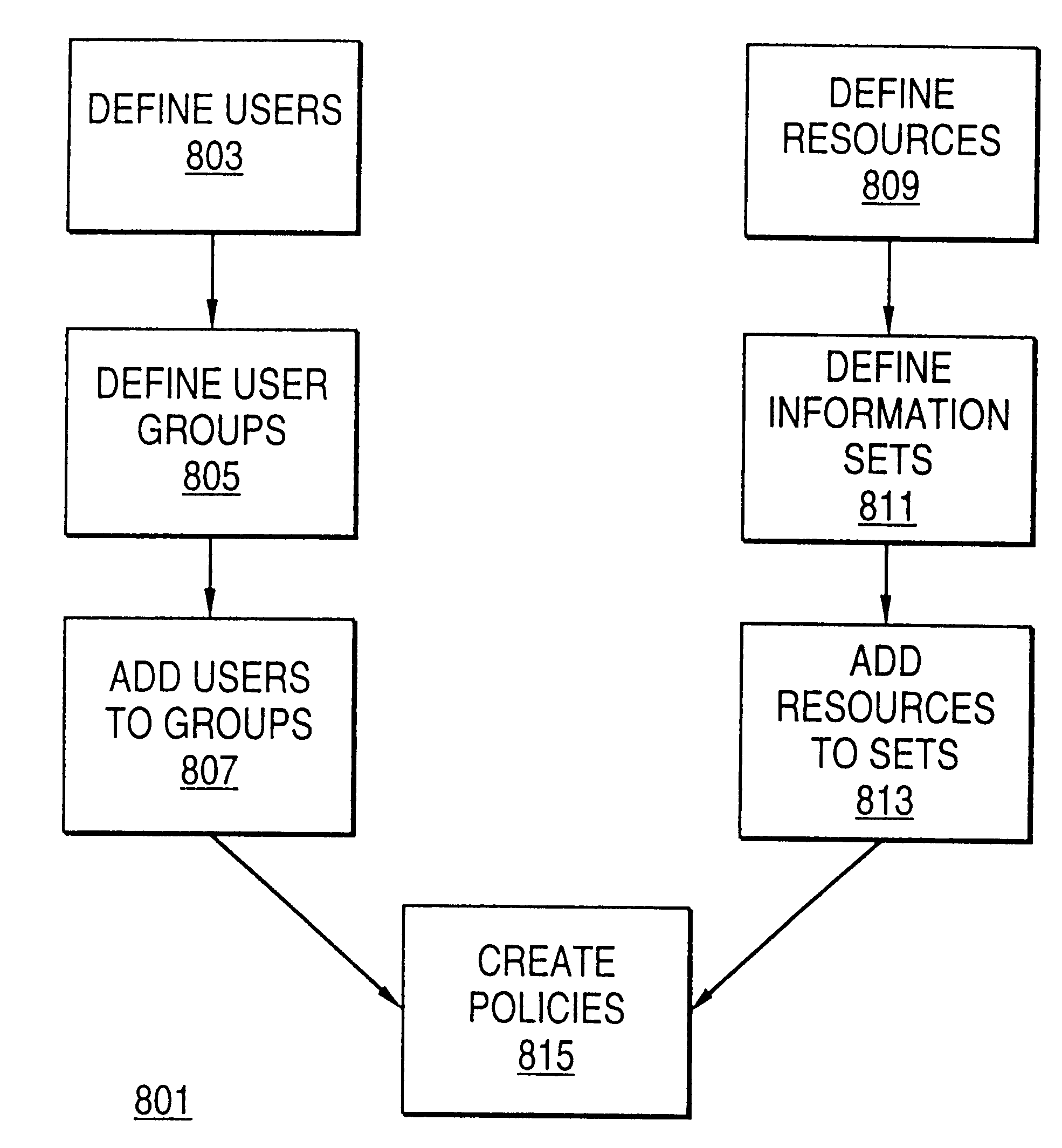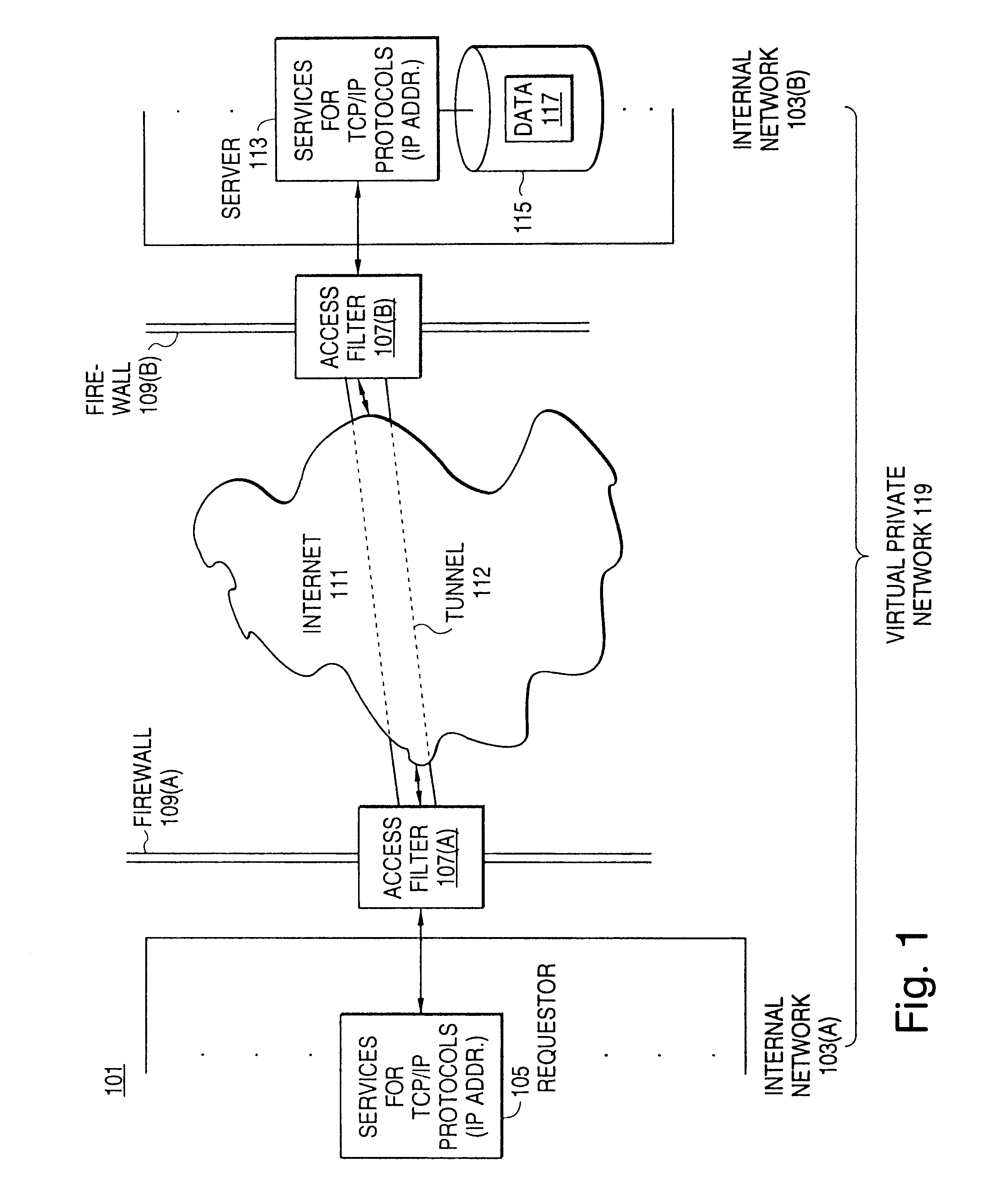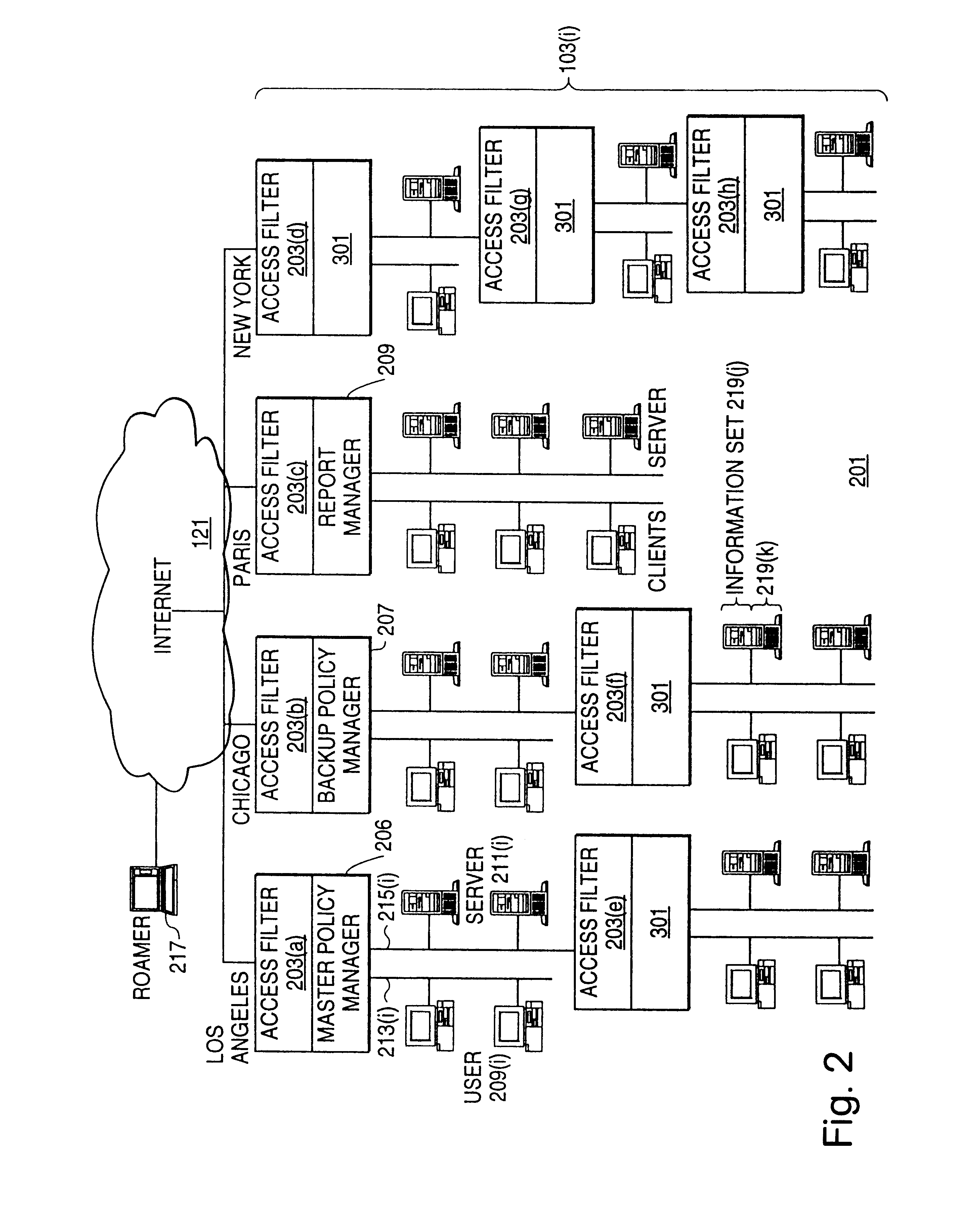Distributed administration of access to information
a technology of information and distribution, applied in the direction of program control, data switching network, instruments, etc., can solve the problems of difficult technical problems, difficult to protect information, and difficult to block skilled intruders, etc., to maintain security en route through the intern
- Summary
- Abstract
- Description
- Claims
- Application Information
AI Technical Summary
Problems solved by technology
Method used
Image
Examples
Embodiment Construction
of Operation of Access Filter 203: FIGS. 5 and 22
In the following, the end-to-end encryption example of FIG. 5 will be explained in detail. In that example, a roamer 503 whose PC is equipped with SKIP is accessing a SKIP-equipped server 407 inside a site on VPN 201. When roamer 503 was set up to access VPN 201, it was set up to do so via access filter 403(3) using a particular type of encryption. Here, it will be assumed that the type of encryption being used by roamer 503 has a trust level of "secret" and that the user wishes to access a Web page on server 407 that has a sensitivity level of "secret". Since what is being accessed is a Web page, roamer 503 is using the HTTP protocol for its session with the HTTP service on server 407. Since roamer 503, the access filters 203 in VPN 201, and server 407 are all equipped with SKIP, they are all provided with their own public and private keys. At a minimum, roamer 503 also has the certificate and public key for access filter 403(3) to w...
PUM
 Login to View More
Login to View More Abstract
Description
Claims
Application Information
 Login to View More
Login to View More - R&D
- Intellectual Property
- Life Sciences
- Materials
- Tech Scout
- Unparalleled Data Quality
- Higher Quality Content
- 60% Fewer Hallucinations
Browse by: Latest US Patents, China's latest patents, Technical Efficacy Thesaurus, Application Domain, Technology Topic, Popular Technical Reports.
© 2025 PatSnap. All rights reserved.Legal|Privacy policy|Modern Slavery Act Transparency Statement|Sitemap|About US| Contact US: help@patsnap.com



